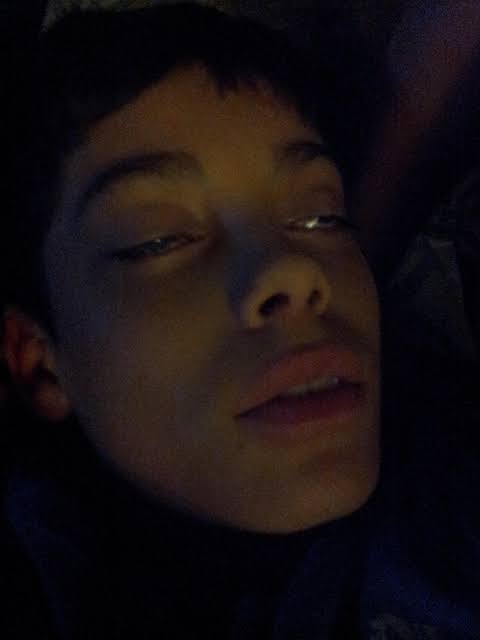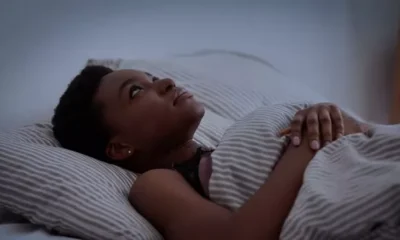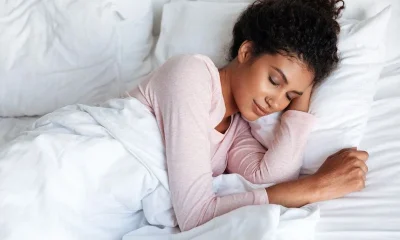Lifestyle
Why Some Persons Sleep With Their Eyes Half Open

Some persons open their eyes half way while sleeping and Doctors call this condition “nocturnal lagophthalmos.”
If you have it, you can usually close your eyes most of the way when you sleep, but not completely.
READ ALSO: How You Can Keep Your Guy Interested Without Sleeping With Him
Many people who sleep with their eyes open don’t realize it. Nocturnal lagophthalmos can lead to health problems over time, but there are ways to treat it.
In this condition, a person’s eyes remain partially or fully open during sleep.
There are a few reasons why some people may sleep with their eyes open:
Incomplete eyelid closure: Some individuals may have difficulty fully closing their eyelids due to muscle or nerve problems. This can lead to the eyes being partially open during sleep.
Muscle tone issues: The muscles responsible for closing the eyes may not function properly in some cases, leading to difficulty in keeping the eyes closed during sleep.
Underlying medical conditions: Certain medical conditions, such as facial nerve paralysis (Bell’s palsy), may result in the inability to close the eyes completely during sleep.
Eye-related conditions: Individuals with certain eye conditions, like exophthalmos (protruding eyes) or proptosis, may find it challenging to keep their eyes closed during sleep.
Genetic factors: In some cases, there may be a genetic predisposition to sleeping with eyes open.
Medications: Certain medications, such as sedatives or muscle relaxants, can relax the muscles responsible for eyelid closure, potentially causing the eyes to remain open during sleep.
While sleeping with the eyes open is generally not harmful, it can lead to discomfort, dryness, and irritation in the eyes.
Additionally, the exposed cornea may be more susceptible to dryness, which could potentially lead to other eye issues.
If someone suspects they are sleeping with their eyes open or experiences any discomfort, it is advisable to consult with a healthcare professional or an eye specialist for proper evaluation and guidance.
Send Us A Press Statement Advertise With Us Contact Us
And For More Nigerian News Visit GWG.NG










